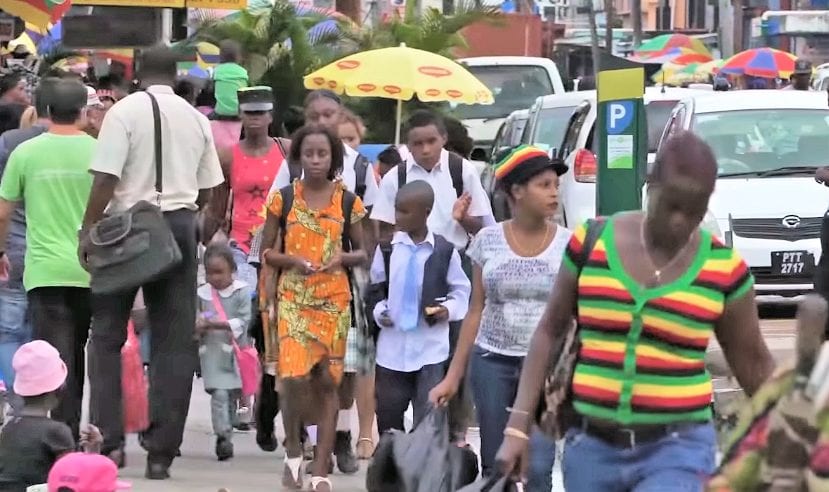Guyana, as a newcomer to the league of oil producing nations, is in a unique position to learn from and avoid the many mistakes which have been made by other resource-rich countries and to emulate best practices for effectively managing the influx of billions of dollars in revenue from development of its oil fields.
The small South American nation, one of the poorest in the western hemisphere, is now on the cusp of massive transformation from development of the multi-billion-barrel oil resources discovered off its coast.
Speaking on a recent podcast, International Monetary Fund (IMF) Mission Chief to Guyana, Dr. Arnold McIntyre says when examining other countries, a significant percentage of oil revenue goes into public investment.
“So, the Public Investment Management Function is key, and we did a Public Investment Management Assessment — what is called a PIMA — in 2017 which made certain specific recommendations which the Government [of Guyana] is working on now,” he said.
Some of the goals is that by 2020, Guyana should have a transparent, rules-based fiscal framework that clearly spells out targets for capital spending, and a policy framework for Public-Private Partnerships should be developed and published.
“The key issue here is transparency, and importantly, evidence-based investment decisions; you know, rigorous cost-benefit analysis that provides good analytical frameworks for choosing between different investments and prioritizing those investments and ensuring that you stay within the targets of the medium-term fiscal framework for public investment and you don’t exceed them,” Dr. McIntyre stated.
He acknowledged that skilled labour remains an issue in Guyana, “because you have to have the skills within the public sector at the Ministry of Finance and others to be able to do that type of analysis—the accountants, the engineers and that kind of thing.”
The World Bank has reported that Guyana’s human capital is below the median for the region and for its income group. When adjusted for quality of learning, 12.1 years of schooling is equivalent to only 6.7 years, equating to a learning gap of 5.4 years in Guyana. The IDB has reported that Guyana’s performance at the Caribbean Examination Council Examination is below the Caribbean average. Furthermore, despite anecdotal evidence of some recent brain-gain, Guyana still has the world’s seventh-highest rate of emigration according to the IDB, and most emigrants are skilled and/or with university education. Also, despite many governance and transparency-related reforms, Guyana stands at 93rd out of 180 countries on the Corruption Perceptions Index.
Dr. McIntyre said the Guyana Government is moving in the right direction in terms of addressing shortcomings. The Integrity Commission has been revitalised and just over 50 percent of the asset declarations of about 1200 public officials has been completed. The IMF Mission Chief reminded that Guyana is constrained by lack of skills which adversely affects its ability to carry out many of these functions.
Of importance, he reminded, is the transparency and accountability around the public officials responsible and deeply involved in the management of oil wealth and also the politically exposed persons.
Strengthening the institutional capacity of the Ministry of Finance and other institutions to undertake large public investment functions is also paramount. “Therefore, in the initial years of oil wealth, it is important not to ramp up too fast and get caught up in white elephants and bad spending. Give yourself time while you’re addressing people’s needs because people have real needs in Guyana. While you’re addressing people’s needs, give yourself time to build capacity that you need and some of that is going to have to come from foreign expertise, CARICOM and otherwise,” he said.
Caribbean Economist, Marla Dukharan, says Guyana is arguably on the verge of its first major opportunity to meaningfully transform not just its economy, but the quality of life for all its people. “The world is watching to see how Guyana’s leaders balance the often-competing demands for spending to secure sustainable socio-economic development, versus short-term, politically expedient purposes.”



